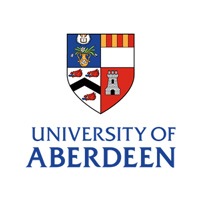fees waived
Psychology with German, MA (Hons)
University of Aberdeen, United Kingdom
Subject ranking
UK / Times 2025 7th
UK / Times 2025 12th
UK / Guardian 2025 12th
Costs
food & rentS$17K / year
Entry requirements
Scholarships
Limited quantity
Information
Code
Intakes
Website (External)
Programmes
Information
Duration
2029
Course summary
Psychology deals with the understanding and explanation of behaviour and experience, and with how these change and develop throughout our lives. Psychologists are interested in many factors that affect our behaviour - from biological bases to social influences. They also study how we perceive our environment; how we think, learn and remember; how we communicate, both through language and non-verbally; and how we differ from one another in personality and abilities. Psychology is an experimental and observational science, in which evidence from research studies is used to develop and evaluate theories. Psychology is a science in the sense that it seeks to understand mind and behaviour through experimentation, observation and measurement. Insight and intuition are helpful skills, but they are not sufficient. Psychology is not simply the study of mental illness. If you are expecting psychology to tell you how to read other people's minds, then you will be disappointed. On the other hand, if you enjoy controversy and the critical evaluation of ideas, and if you like investigating questions using a scientific approach, then you will probably enjoy psychology.You will gain a solid grounding in the German language whatever your level, in a programme with the highest possible rating of ‘Excellent’ in the last national Teaching Quality Assessment. You will also develop a broad understanding of culture in the German-speaking world, with courses in social, historical and cultural aspects of these countries and encounter the world of German artistic expression in the form of literature, film and art, together with a deeper understanding of Germany’s complex history.As an integral part of your 4-year programme, you will spend half of year three developing your language skills as a teaching assistant or visiting student in a German-speaking country. We have exchange scholarships with the Universities of Zurich, Kiel and Greifswald, and Erasmus partners including Leipzig, Cologne, Bonn, Trier and Graz in Austria. Your language ability added to your highly-developed transferable skills in research, critical analysis and communication will open opportunities in many fields. View all modules on the programme page to find out more about what you will be studying and when. University of Aberdeen modules are designed to give you breadth and depth to your degree. The range of modules you study will allow you to become proficient in all subjects which are directly relevant to your degree giving you greater career options. The use of various forms of assessment and learning environments facilitates the development of generic transferable skills enhancing student employability.Students are assessed by any combination of three assessment methods: coursework such as essays and reports completed throughout the course; practical assessments of the skills and competencies they learn on the course; and written examinations at the end of each course. The exact mix of these methods differs between subject areas, years of study and individual courses.Honours projects are typically assessed on the basis of a written dissertation.Modules
Assessment method
Professional bodies
Professionally accredited courses provide industry-wide recognition of the quality of your qualification.
View all modules on the programme page to find out more about what you will be studying and when. University of Aberdeen modules are designed to give you breadth and depth to your degree. The range of modules you study will allow you to become proficient in all subjects which are directly relevant to your degree giving you greater career options.
A local representative of University of Aberdeen in Singapore is available online to assist you with enquiries about this course.

